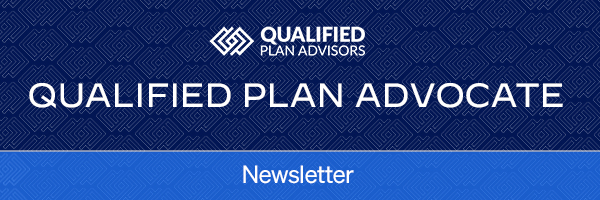Supreme Court Ruling Will Be Impactful. Fred Reish also discussed the United States Supreme Court’s Hughes v. Northwestern University opinion. He confirmed that the Hughes case provided the Supreme Court an opportunity to remind fiduciaries of their responsibilities relating to each and every investment option (which would certainly extend – under heightened DOL scrutiny – to any cybersecurity options).
Takeaways:The Hughes case did not break new ground; it reminded us that the Court had already firmly established its expectations for ongoing prudence. The Court’s reaffirmation of those expectations should help plaintiffs to survive motions to dismiss, which in turn will lead to more discovery and likely more settlements. This should, in turn, lead fiduciaries to remain prudent regarding share class decisions, revenue sharing, and the process for choosing and evaluating investments.
Individualized and Personalized Solutions Are the Present and the Future. Sarah Simoneaux, president of Simoneaux Consulting Services, set the tone for the day with her emphasis on employee communication and the need for employers to understand what employees – particularly younger ones – need, want, and value. Subsequent presenters from Financial Fitness for Life, Morningstar, Empower, and QPA discussed the many ways in which participants are expecting to receive individualized and personalized solutions through financial wellness programs, advisor managed accounts, and other benefit program options (including HSAs).
Takeaways: Plan sponsors and service providers are responding to employees’ greater desire for solutions customized to meet their individual needs and priorities. The fastest-growing solution may very well be advisor managed accounts, which allow a plan advisor the opportunity to combine portfolio management, contribution recommendations, and distribution recommendations into one process. The trend toward customization will likely be apparent in communication strategies, more Roth contribution and in-plan Roth conversion opportunities, and broader access to financial coaching relating to the retirement plan, short-term savings, medical savings, budgeting, and other financial wellness needs.
In-plan Income Is Needed, Valued, and Becoming Expected. Matt Wolniewicz, the President of Income America, addressed the growing demand for in-plan guaranteed income. He presented statistics reflecting that demand, the increasing need as fewer employees have defined benefit plan access, and strategies for meeting that need.
Takeaways: The SECURE Act provided a fiduciary safe harbor for the selection and monitoring of in-plan investment vehicles that will provide participants with access to guaranteed lifetime income. The marketplace is beginning to see the fruits of the product innovation stimulated by that safe harbor, which is leading to more talk about the benefits of guaranteed income. However, there are few portable, non-proprietary offerings (like Income America’s 5forLife) widely available. We expect plan fiduciaries to begin to ask: (1) what is available with our current recordkeeper? and (2) how can we gain access to non-proprietary offerings?
Look for the Helpers. Sarah Simoneaux also delivered the Summit’s most poignant comments when she closed by reminding people to “look for the helpers”. If you’ve read this far, the chances are high that you’re in that group. You have chosen a profession that provides you the responsibility and the opportunity to help employees become better prepared for retirement and gain the financial independence they covet. We’re here to help with those responsibilities and to play a role in employees’ futures.

